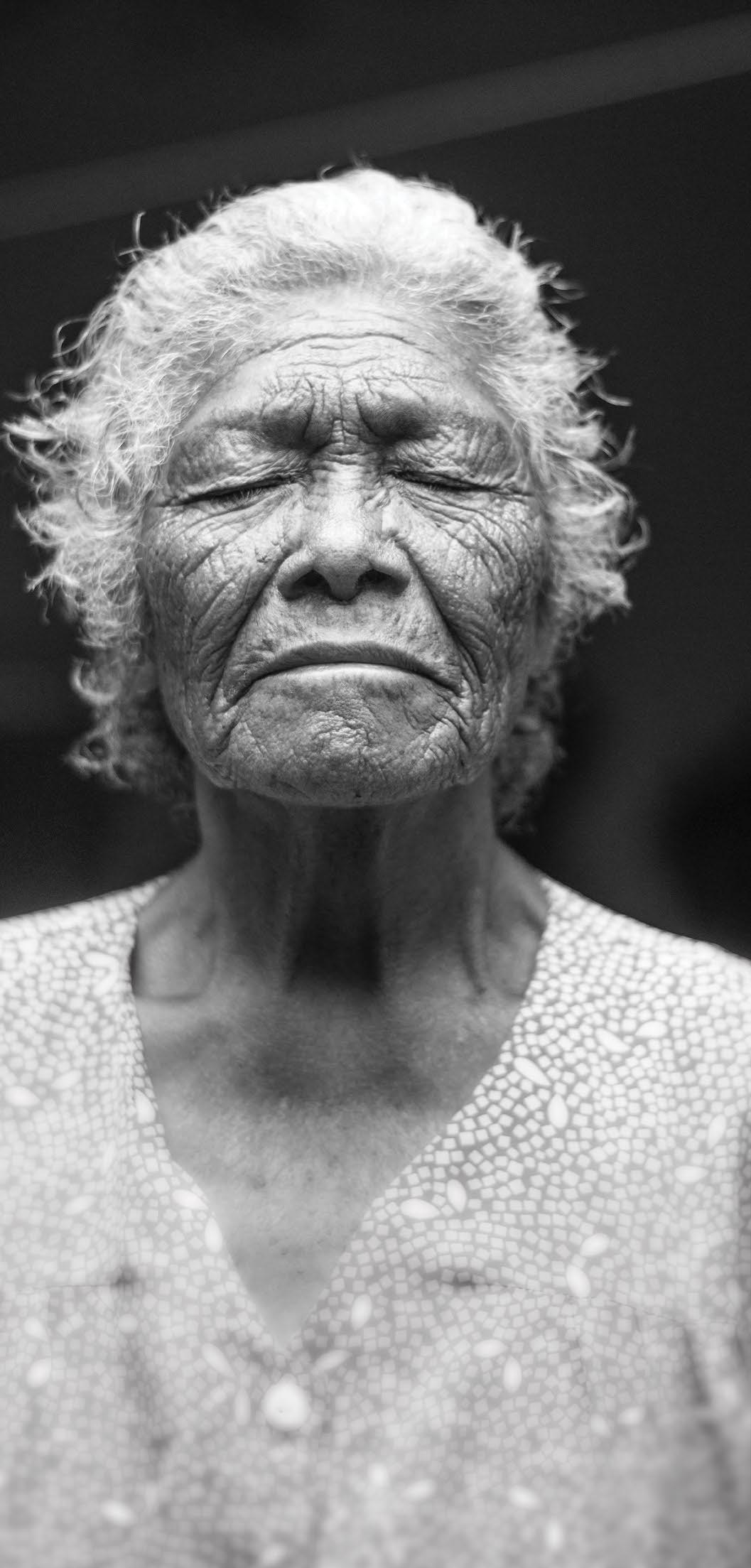
4 minute read
Embodied Remembrance
MOVING FORWARD IN A BETTER WAY A reflection on National Truth and Reconciliation Day – September 30
BY DR. DANNY ZACHARIAS
Advertisement
IN 2015, the Truth and Reconciliation Commission of Canada (TRC) concluded its eight-year long process. The TRC hosted seven national events across Canada to share and honour the experiences of former students and their families. We heard the stories of over 6,500 witnesses. Out of this Commission came an extensive historical record about this dark chapter of our shared history along with 94 Calls to Action directed at every level of society – because our shared history in these lands shapes us at every level. We must always remember that our history, and the stories we tell about ourselves and about our history, shapes us as individuals, as communities, and as societies.
Theologian Chris Green said something on a podcast that has stuck with me. He said, “The future is nothing but what we tell or don’t tell about the past, [and] the future will be as good as the telling of our past is truthful,” (InVerse Podcast, Jul 19, 2021). How do we walk with integrity and humility and wisdom into an unknowable future? We speak the truth about our past and we move forward in a better way. It is into this reality that we have come to this new national day of commemoration. Under the sub-section of Commemoration, TRC Call to Action #80 called upon the government to create a new statutory holiday to honour the children, and to help us not forget.
COMMEMORATION
The work of commemoration is an important one, a vital one. We are forgetful. And in an individualistic society such as ours, we are especially forgetful about things outside of our lifetimes. But we are shaped by our past both individually and collectively in profound ways, ways that we do not often recognize. And so we are called to commemorate. To remember.
As readers of the Bible, we should understand the importance of acts of commemoration. In the Old Testament, the Israelites were often told to remember events that happened way before they were even born! Why? They were invited to listen to the stories that had been passed down in both oral and written form. They were invited to make the old story their own. They were invited to recall, for instance, that God had brought their ancestors out of Egypt, and that this event still had a profound effect on their lives – even generations later.
EMBODIED REMEMBRANCE
But the Israelites weren’t invited to simply recall events to their minds. They were called to embody that remembrance. By eating lamb during Passover they would remember the Exodus. God also told them to live in tents for seven days to celebrate the Feast of Tabernacles and to remember the 40 years of wandering in the wilderness recorded in the book of Numbers. These acts of remembering were not of events that had happened to them, but it became about them as they ate lamb and lived in tents. These were embodied acts of remembrance. Today, as people of the New Covenant, we commemorate the life of Jesus with our holy days, with communion, and with our immersion into the waters of baptism. We enter into the story of Jesus through embodied acts because we are embodied people.
WE ARE SHAPED BY OUR PAST IN WAYS THAT WE DO NOT OFTEN RECOGNIZE.
GOOD WAYS TO REMEMBER
We are forgetful people, and we need to remember in good ways. Not simply to recall something to mind, but to enter into an embodied act of remembrance. To educate ourselves and to listen to the stories. As Chief Justice Murray Sinclair said, “this nation must never forget what it once did to its most vulnerable people.” And so we remember that we have benefitted and continue to benefit from injustices of the past – injustices that were intentionally and expressly done to the Indigenous peoples of these lands.
As we commemorate for years to come, we will remind ourselves of how the evils of the past have shaped this nation and we will seek a better way forward. And this day will become a catalyst in our education systems, when our children will learn for the first time about Residential Schools. Reconciliation will become a path we continually walk, a new ethos of our country. It will confront us with the question “Who do I need to be, given what I know now?” Let’s not shy away from hard truths. Let’s own up to the ways in which this colonial legacy has shaped us at the expense of others. Let us not shy away from speaking prophetic truth to power even when those powers reside within our own house, or even within our own hearts. Because “the future is nothing but what we tell or don’t tell about the past.” And “the future will be as good as the telling of our past is truthful.”
Danny Zacharias serves as Professor of New Testament Studies at Acadia Divinity College, in Wolfville, NS. This is the ancestral and unceded territory of the Mi’kmaw peoples. He also serves as an adjunct professor with NAIITS: An Indigenous Learning Community. He writes as one originally from Winnipeg in Treaty 1 territory. The land where his maternal ancestors lived for thousands of years falls into Treaty 1, Treaty 2, and Treaty 3 territory.








